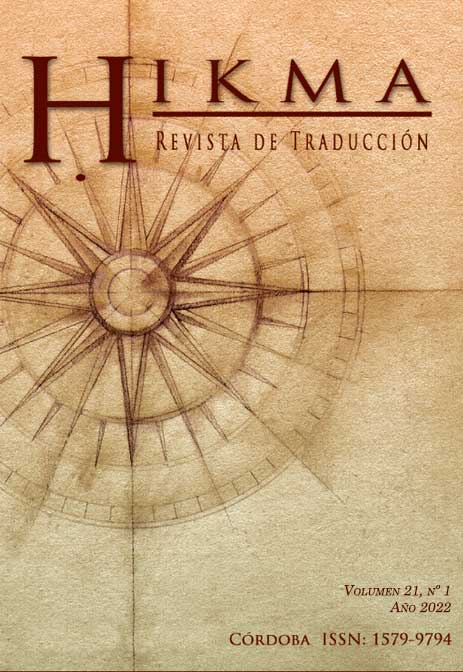How can the type of feedback provided by teachers influence students’ self-efficacy beliefs? A quasi-experimental study in the translation classroom
Main Article Content
Abstract
This paper presents a quasi-experimental field study, performed in the translation classroom, aiming to analyse the influence of teacher’s feedback on the students’ self-efficacy beliefs. This study was performed in three groups of a specialized translation course (Spanish-English) and adopted a mixed-method approach where the following techniques were implemented: classroom observation, interviews conducted with teachers, focus groups with students and the survey, which included The Translator’s Self-efficacy Beliefs Scale (Haro-Soler, 2018a). According to the results obtained, constructive feedback, including indirect, elaborate and dialogic feedback, fostered the self-efficacy beliefs to adequately solve translation problems of the students in two of the groups in this study. On the contrary, direct negative feedback provided by the teacher in a transmissionist learning environment decreased the students’ confidence to solve translation problems in the third group. Therefore, despite the difficulty in performing quasi-experimental field studies in the classroom (Nunan, 2007), this study will contribute to satisfying the need, identified by Bolaños-Medina (2014a), to perform (quasi-)experiments to empirically shed light on teaching practices that allow for the development of the students’ realistic self-efficacy beliefs in translator education.
Downloads
Article Details

This work is licensed under a Creative Commons Attribution-NonCommercial-ShareAlike 4.0 International License.
Authors who publish with this journal agree to the following terms:
1. Authors retain copyright and grant the journal right of first publication with the work simultaneously licensed under a Creative Commons Attribution License that allows others to share the work with an acknowledgement of the work's authorship and initial publication in this journal.
2. Authors are able to enter into separate, additional contractual arrangements for the non-exclusive distribution of the journal's published version of the work (e.g., post it to an institutional repository or publish it in a book), with an acknowledgement of its initial publication in this journal.
3. Authors are permitted and encouraged to post their work online (e.g., in institutional repositories or on their website) prior to and during the submission process, as it can lead to productive exchanges, as well as earlier and greater citation of published work (See The Effect of Open Access).

